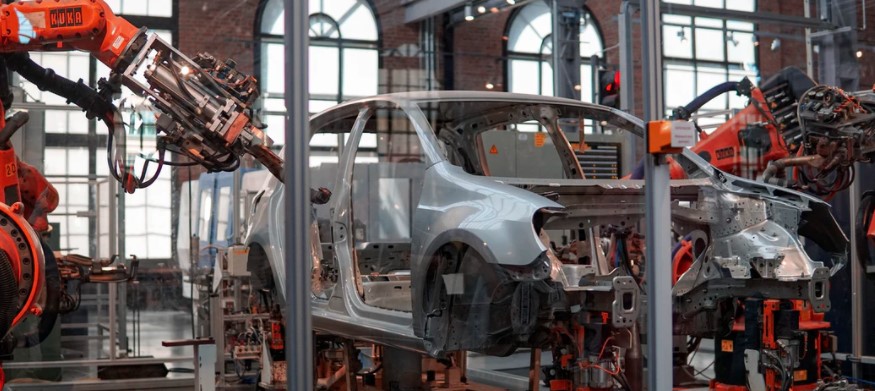The poll by the opinion research institute Civey on behalf of Diakonie Deutschland is striking in its clarity: Those who answered no, were 47,3 percent of the 5000 respondents who said “no, definitely not” and 15,2 percent said “rather not”. On the other hand, 14,4 percent said “yes, definitely” and 13,2 percent said “more or less yes”.
According to the majority, integration has failed
A large majority also view integration with scepticism. When asked whether the immigrants of the past ten years have been well received in German society, 57,8 percent said “no, definitely not” or “rather no”. By contrast, 12,5 percent ticked “yes, definitely” or “rather yes”. Almost 28 percent said “partly/partly”, the rest “don’t know”. The percentage of yes was above average, especially among students, while the self-employed, pensioners and employees tend to view integration as a failure.
Diakonie President Ulrich Lilie said that the results did not surprise him, but sobered him. “Obviously, the majority of Germans do not perceive and describe the admission of refugees and their integration as a success story. Not everyone who is critical of migration is right-wing extremist. But without this sounding board, the terrible right-wing simplifiers with their ‘we-or-you’ logic would have a much harder time making political profit from it.”
Criticism of EU external border controls
Lilie called on politicians to think about integration, education and social policy together. Migrants must be integrated in their immediate environment. “We also have to make the successful integration stories audible and turn Germany into the country of immigration, telling everyone that it is, in fact, a positive experience. It takes these good stories to let the either-or-narratives become quieter.” In a press release, Diakonie criticized the controls at the EU’s external borders, which were referred to as “so-called ‘protection'”.
The number of asylum applications rose by almost 120 percent in May 2021 compared to the same month last year. Something similar can be observed in the Mediterranean, through which significantly more immigrants came to Europe than in previous years.
A study by the University of Munster came to the conclusion that European societies, including German societies, were divided in terms of identity policy. One aspect is therefore immigration, which is seen as an opportunity by some parties and viewed with scepticism by the others.
The Diakonie is supported by the Protestant Church, which apparently wanted to democratically legitimize its demand for the admission of more asylum seekers on the occasion of the “World Refugee Day” on June 20. But their effort has backfired because as a result of the survey, it would be democratically legitimate to stop admission.
This sentiment is particularly noteworthy against the background of the long-term multi-cultural propaganda unleashed on the German public by the mass media, churches, trade unions and other organizations. The ideology and practice of open borders is clearly the agenda of a minority among the people who circumvent the will of the people with anti-democratic methods – defamation, contempt, secret service infiltration, professional bans and, in particular, the synchronization of pro-migration messaging in the mainstream press.
Lilie has apparently understood that his organization has scored a propagandistic own goal with the Civey survey. As a consequence of the mood, he called for a tightening of the popular educational thumbscrews and declared the majority of the population to be an instinct-driven precariat: “Anyone who feels socially threatened, sees no perspective for themselves and their children, lives at or below the subsistence level, closes down inside more quickly – even with refugees.”
Respect for the will of the majority of the population does not concern Lilie, who explained: “Taking in more refugees remains one of the most important tasks for one of the richest countries.”
Why must Germany take in more people?
A young German man who works for a car manufacturer meanwhile told Tichy’s Einblick what the real situation was regarding employment: “You simply can’t find any more people in Germany. The baby boomers who have dominated the market up to now are now going into retirement in large numbers. You cannot replace them.
“Of course there are still young people in the triangle Hannover Braunschweig Wolfsburg. But they are no longer Germans, like the baby boomers who have so far made up the core of the companies. But they hardly had any children. Mostly it is now Turks, North Africans, Kosovars, Caucasians, Eritreans, the ‘refugees’ since 2015, who came and settled there. But you can’t do anything with uneducated applicants.
“You need skilled workers, mechatronics technicians, cutting machine operators, locksmiths, the entire range of precision industry. They train people, there are enough apprenticeship positions, but they have neither the time nor the money to re-teach the entire school education since the third grade.
“You need people who, even as apprentices with 1000 net, and are ready to start the morning shift at 6:30 am, every day. Who comes on time and knows what that means. Who can do without a smartphone for at least 5 minutes, understand the instructions in German, are even ready to actually work. They understand that the lowered Golf GTI with Brembo titanium exhaust is only available after several successful years as an employee, and not at 19 after three months of temporary work.”
In Saxony-Anhalt, he said, the few young German men without a high school diploma adapt to the migrants in appearance, jargon and living conditions. The migrants themselves have not adapted to German life at all. For that reason, car manufacturers are relocating to Eastern Europe where the work ethic and education are still good.













One comment
Leftists are the cause.
Blood for blood.
Tbey destroyed our sacred Europe!
By submitting a comment you grant Free West Media a perpetual license to reproduce your words and name/web site in attribution. Inappropriate and irrelevant comments will be removed at an admin’s discretion. Your email is used for verification purposes only, it will never be shared.